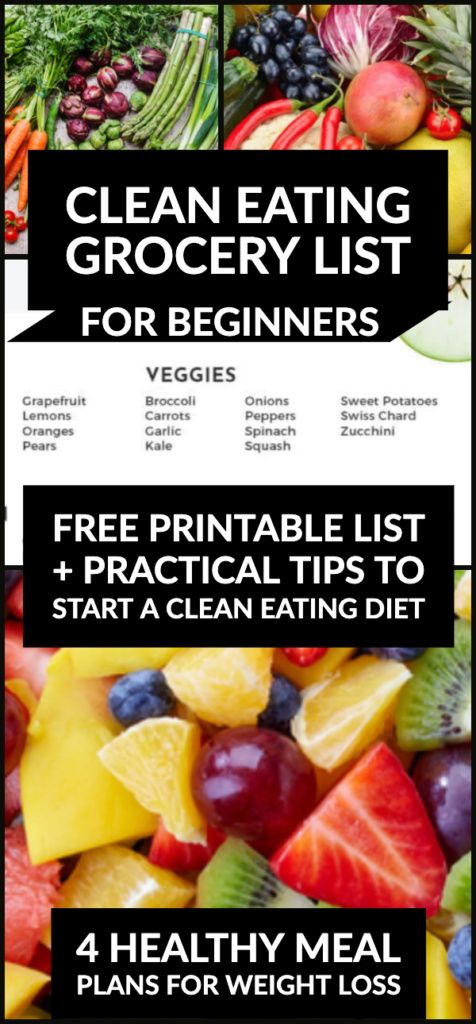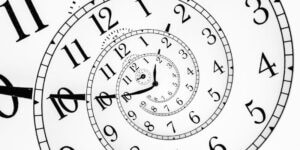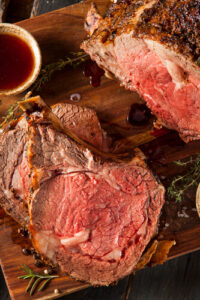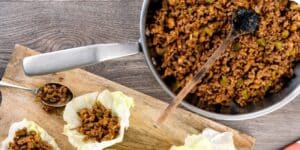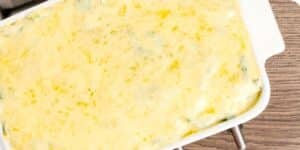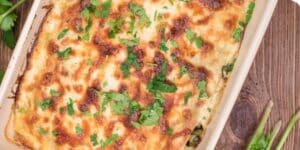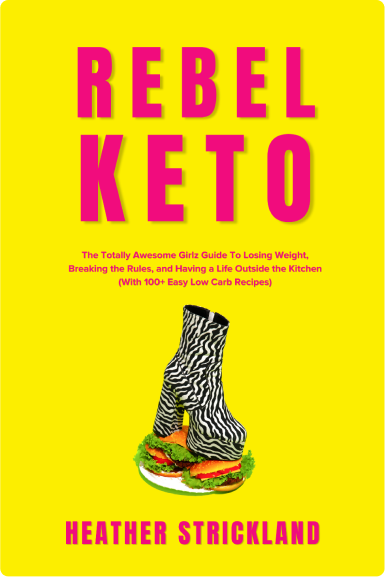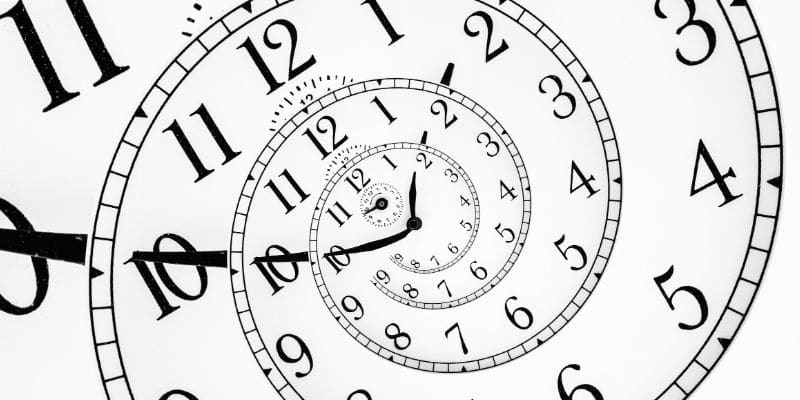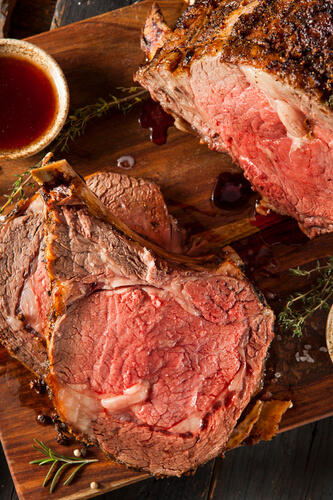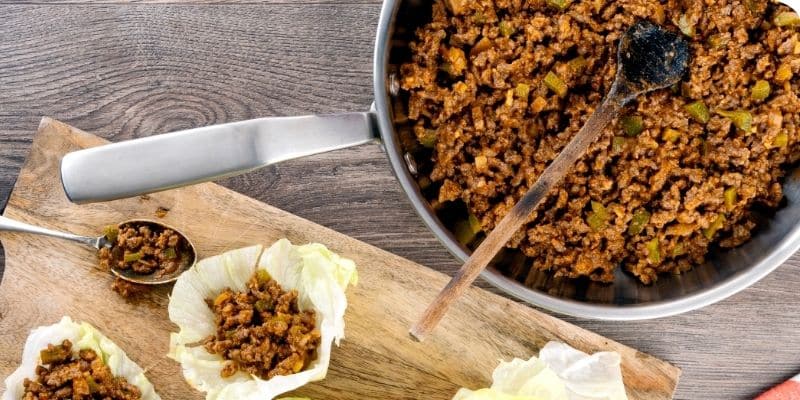The ultimate clean eating resource for beginners starts with a free printable shopping list and ends with five free meal plans to help you lose weight. Whether you’re eating clean for weight loss or looking to start a new healthy eating plan, you’ll find everything you need to get started here.
From healthy eating tips to meal planning when you’re on a budget to meal prepping, you’ll learn everything you need to know about a clean eating diet – including the best healthy foods, fruits and vegetables to stock your pantry.
*This post was originally published in 2020, and has been updated to reflect the 2024 Dirty Dozen and Clean Fifteen lists.
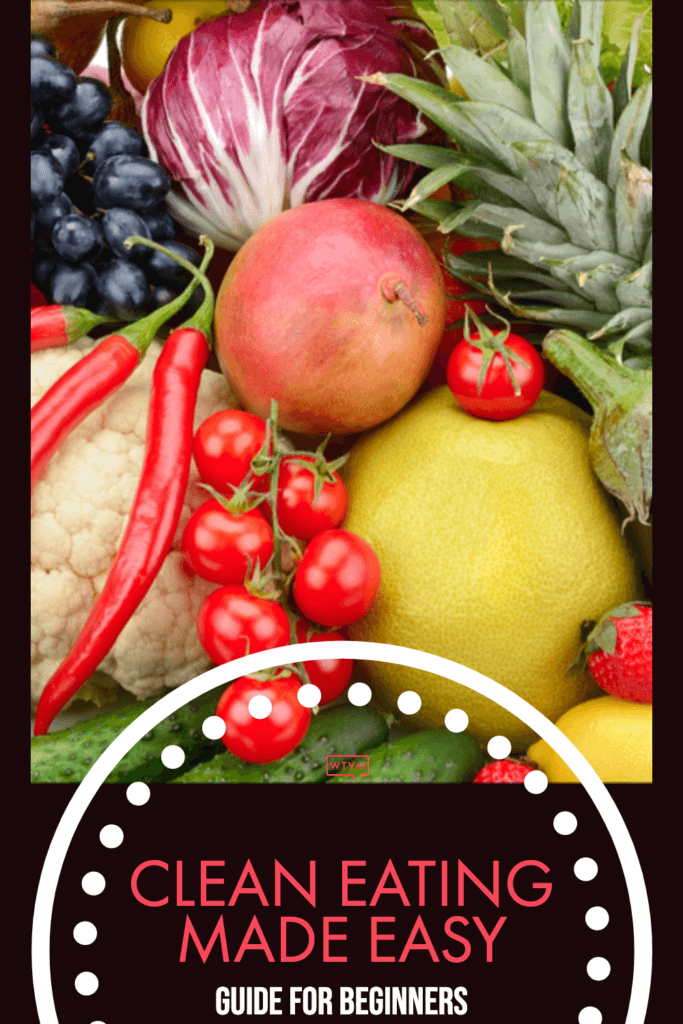
This post may contain affiliate links. For more information, please see my disclosure page.
What Is Clean Eating?
Eating clean simply means eating food in it’s most natural state – or as close as possible! When you’re on a clean eating diet you 1) Eat whole foods like fruits, vegetables, whole grains, and healthy fats 2) Keep your intake of processed foods (junk food, fried food and sugar) to a minimum.
Why Eat Clean?
Benefits of cleaning up your diet include weight loss, increased energy, stronger hair and nails, clearer skin, improved mental health, and better sleep.
Weight Loss: You may have heard losing weight starts in the kitchen. Well, it’s true. Weight Loss is 70% the foods you eat and 30% exercise. When you choose a clean eating lifestyle you clean up your diet, eat healthy foods that nourish your body and weight loss follows.
More Energy: Eating a diet full of healthy foods nourishes your body and gives you energy. A Clean Eating diet can also help stabilize blood sugar levels by providing you sustainable energy throughout the day so you won’t be going from a sugar high to sugar crash.
Clear Skin: Eliminating processed foods and eating more Omega-3’s like salmon along with fruits and vegetables is believed to clear complexions especially those who suffer from acne.
Mental Health: Clean Eating diets rich in Vitamins like B-6 and Omega-3 fatty acids support good mental health. Vitamin B-6 helps create the feel-good chemical dopamine.
Clean Eating Tips
Cook at Home
90% of the time you’re guaranteed a healthier more nourishing meal than anything you could order at a restaurant or fast food joint. (Including salad) When you cook at home, you’re in control of what goes into the food – there’s no guesswork involved.
If you don’t consider yourself a chef or barely know your way around a kitchen – no worries! Start with simple recipes with 2-3 ingredients and build your way up to more complicated methods.
Meal Planning & Your Budget On A Clean Eating Diet
Prep vegetables and fruits once a week & store in containers to portion out for the week’s meals
Cook once – eat twice: Double recipes so you can enjoy leftovers for lunch or dinner
Eat What You Love – Don’t Force Yourself to Eat Anything – If you’ve never loved spinach chances are that won’t change. Don’t make yourself eat something because it made the superfoods list. There are plenty of options!
Progress Over Perfection – Don’t overly criticize yourself if your recipe didn’t work out – learn from it & move on. Very few people turn into Martha Stewart overnight.
Related: Clean Eating Meal Prep Tips & Recipes
Clean Eating Tip: Read The Labels
Tosca Reno – one of the originators of the Eat Clean Diet says
“If you can’t read it, don’t eat it!”
Check for preservatives, unhealthy fats and added sugar.
Label Reading 101
Check The Serving Size – Servings Per Container: Most foods contain more than one serving!
Sugar-Free – Many manufacturers break up the sugar by using lesser known names for sugar. There are over 50 sugar aliases – but some of the usual suspects are fructose, brown rice syrup, barley malt, & corn syrup.
Fat-Free or Reduced Fat – Low fat doesn’t mean healthy – & when manufacturers take out fat most of the flavor is removed. So, they replace it with sugar, which is not healthy.
Made With Real Fruit – You know what is made with “real fruit”? Fruit Roll-Ups! Go for the whole food – healthy fruits & vegetables do not come in a box.
All Natural – Sounds healthy, but consider there is no legal definition for what All Natural is. Food manufacturers can label anything with All or 100% Natural. Check. instead for USDA Certified Organic
Whole Grain – Another technicality. All the Whole Grain label means is that there is a whole grain in the ingredients. Somewhere – mixed in with the flour. Check instead for 100% Whole Grain.
Grass-Fed – You’d think it means the animals used to provide the meat and dairy were fed grass exclusively but as a labeling claim – not so much. Look for seals for American Grass-fed or PCO Certified 100% Grass-fed.
Processed or Not? – If the label says nitrate, cured or salted it’s processed
Clean Eating Produce
Fresh Is Best
Local Is Better – Shop your local farmer’s market for in-season fruits & veggies
Organic Is The Ultimate – By sticking to organic produce, you can be certain chemicals like pesticides & hormones stay off your plate
The Dirty Dozen & The Clean Fifteen
Every year since 2004 the Environmental Working Group (EWG) releases their Shoppers Guide to Pesticides in Produce.
The Dirty Dozen is a list of the top 12 fruits & vegetables containing the highest amount of pesticides – steering the EWG to recommend opting for organic.
The Clean Fifteen contains the least and are safe to buy conventionally. Both lists are based on data from the United States Department of Agriculture and The USDA’s Pesticide Testing Program as well as the Food & Drug Administration.
The Dirty Dozen – 2024 – (Buy Organic)
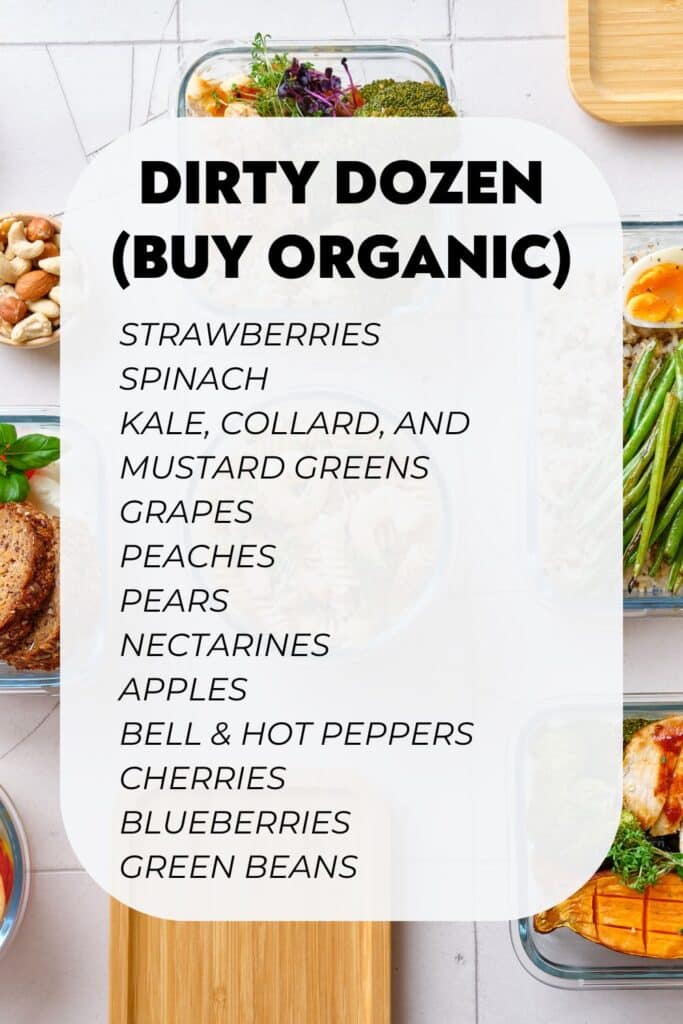
The Clean 15 – 2024 – (Safe To Buy On Produce Aisle)
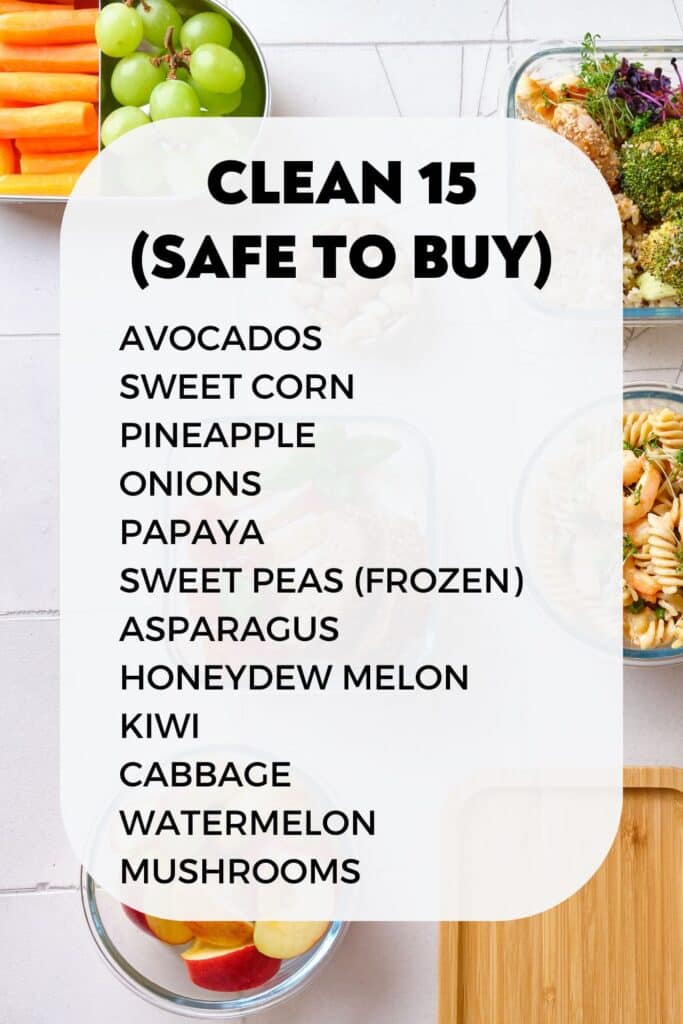
Clean Eating Fruits
Apples
Avocados
Bananas
Berries
Cantaloupe
Grapefruit
Lemons
Oranges
Pears
Vegetables
Asparagus
Bell Peppers
Broccoli
Carrots
Cabbage
Corn
Garlic
Kale
Mushrooms
Onions
Peppers
Potatoes
Spinach
Squash
Sweet Potatoes
Swiss Chard
Zucchini
Protein
Grass-fed Beef, Bison, Buffalo or Venison
Organic, Free Range Chicken
Wild-Caught Salmon
Lean Turkey
Organic Pastured Pork
Wild-Caught Fish (Farm Raised are not fed a natural diet & contain fewer omega 3’s)
Whitefish
Clean Whole Grains & Complex Carbohydrates
Barley
Buckwheat
Beans: Black Beans, Chickpeas, Kidney Beans, Lentils, Split Peas, Edamame, Garbanzo
Clean Dairy
Greek Yogurt
Full Fat Cottage Cheese
Organic Sour Cream
Goat Cheese
Organic Eggs
Organic Butter
Nuts, Seeds & Oils
Herbs & Spices
Condiments
Organic Molasses
Pure Maple Syrup
Clean Eating Baking Essentials
Almond Flour – Finely ground, blanched almond flour. Healthy, low carb substitute for wheat flour. Bonus: Measures cup for cup for flour in bread recipes like muffins, pancakes & cookies. Available on Amazon
Coconut Flour – USDA Certified Organic Pure Coconut Flour by Anthony’s (affiliate link)
Whole Wheat Flour – 100% Stone Ground by Bob’s Red Mill. Available on Amazon
Whole Grain Bread Mix – Gluten-Free & Vegan/Vegetarian Bread Mix by Bob’s Red Mill. Available on Amazon
Stevia – Organic, all-purpose sugar substitute. Cooks, bakes & mixes like the real thing with 0 carbs, no sugar, no gluten & no calories by Pyure. Available on Amazon
Cacao Powder – Certified Organic, Guilt-Free Chocolate superfood. Use in baking and smoothies or coffee by Viva Naturals. Available on Amazon
Coconut Palm Sugar – USDA Organic, unrefined, sugar swap. Available on Amazon
Drinks
Water
Lemon Water
Stur Water Enhancer – Sugar-Free, Zero calorie water enhancer – sweetened with Stevia. Available in a variety of flavors on Amazon
Sparkling Water – Unsweetened, no added sugar, gluten-free, non-GMO. Try Spindrift. Available on Amazon
Coffee
NOKA Fruit & Veggie Smoothie Squeeze Packs – 100% Organic, no added sugar, no preservatives. Available on Amazon
Tea
Unsweetened Coconut Milk
Unsweetened Rice Milk
Red Wine – Contains antioxidants that reduce inflammation. Limit to 1-2 glasses per day.
What To Avoid
Stay Away from Processed Foods
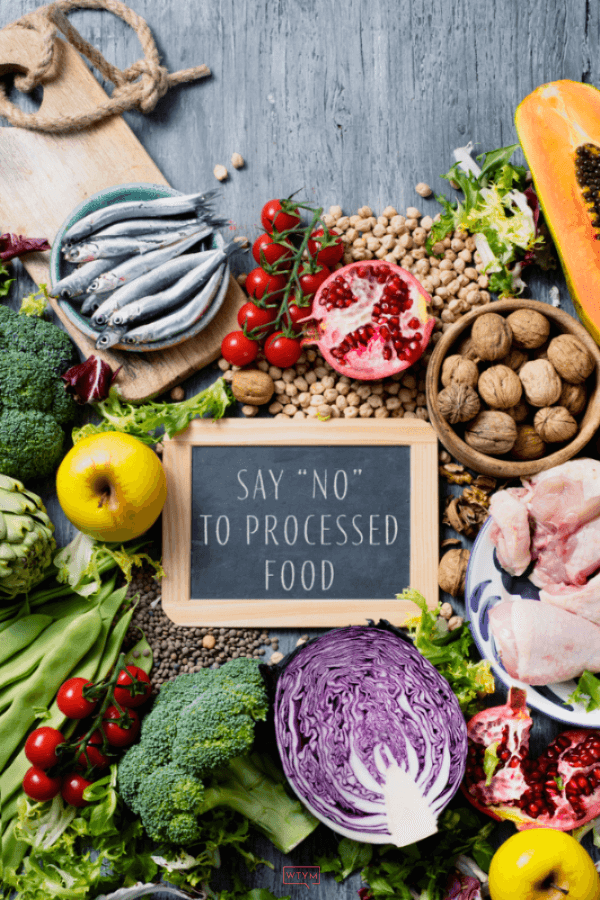
Processed foods are off limits because they have been modified (or changed) from their natural state.
Stick to whole foods – those that occur in nature and don’t require flashy packaging.
Avoid Refined Grains & Sugar
White Bread
White Pasta
White Flour
White Rice
Sugar
High Fructose Corn Syrup
Sugary Drinks: Sodas, Juice
Cereals
Crackers
Chips
Cookies
Fast Food – especially fried
Frozen Pizza
Baked Goods: Doughnuts, Muffins, Pastries, Pies
Trans Fats
Fried Foods
Vegetable Shortening
*Anything with hydrogenated oil
Processed Meats
The World Health Organization defines processed food as Any meat that has been modified from its natural state “Through salting, curing, fermentation, smoking or other processes to enhance flavor or preserve preservation.”
Cured Bacon
Beef Jerky
Sausage
Salami
Salted & Cured Meat
Smoked Meat
Deli Meat
Hot Dogs
Pepperoni
Processed Cheese
Processed cheese is not 100% cheese. It’s not even 75% cheese. Salt, preservatives, food dyes, emulsifiers, vegetable oil and other artificial ingredients are added to processed cheese and can amount to 50% of the ingredients! Why all the extra stuff? The filler makes it cheaper.
Spreadable Cheese
String Cheese
Pre-Sliced Cheese
Spray Cheese
Individually Wrapped Cheese
Clean Eating & A Low Carb Diet
In case you’re wondering if you can combine a low carb and a clean diet – the answer is yes! With a few modifications, of course!
No Grains, Bread, Pasta or Rice: Grains, bread, pasta, rice, and beans all have too many carbohydrates to be considered low carb or keto.
Fruits: To keep it low carb or keto limit fruits to 1/2 cup per day. And stick to blackberries, blueberries, strawberries & raspberries. The other fruits contain too many sugars to be considered keto!
Vegetables: Vegetables also need to be limited: stick to non-starchy veggies & don’t include root vegetables like potatoes, sweet potatoes, or butternut squash.
Dairy: On a clean version of keto ideally you’ll skip dairy altogether, but if it’s a must-have for you, limit yourself to 1 cup per day & stay away from processed cheese!
6 Meal Plans
21 Day Clean Eating Meal Plan
This 21-day healthy meal plan will show you how to clean up your diet with clean food swaps, the benefits of a clean diet, how to eat clean for weight loss, plus 51 healthy recipes for breakfast, lunch, and dinner.
Plant Based Diet Meal Plan
Get the details on the Plant-Based Diet, including how to eat a healthy, whole-food diet on a budget, the benefits of a Plant-Based Diet, how to lose weight, and 90 recipes for breakfast, lunch, and dinner.
50 Clean Eating Recipes for Beginners
50 Clean Eating recipes for breakfast, lunch, and dinner to add to your meal plan for weight loss.
Whole30 Meal Plan
This guide will give you all of the tools you need to start the Whole30 Challenge, including background on what the Whole30 Diet is all about, health benefits, foods to eat and foods to avoid, and 90 Whole30 recipes for every meal.
Paleo for Beginners Meal Plan
Find out what the Paleo Diet is all about, what foods are Paleo and what foods to avoid, shopping tips to help you prevent a grocery store Paleo panic attack, plus 21 Paleo recipes to get started today.
Low Carb Diet Meal Plan
Find out everything you need to know about a low carb diet, including why low carb diets get results, the health benefits (in addition to weight loss), foods to eat and foods to avoid, and 40 low carb recipes to get started.
Keto Diet For Beginners 30 Day Meal Plan
If you’ve considered trying the ketogenic diet for weight loss, this is the complete beginner’s guide with an explanation of what keto is, food lists, tips for weight loss, and 90 recipes for every meal – including snacks and dessert.
Shopping List
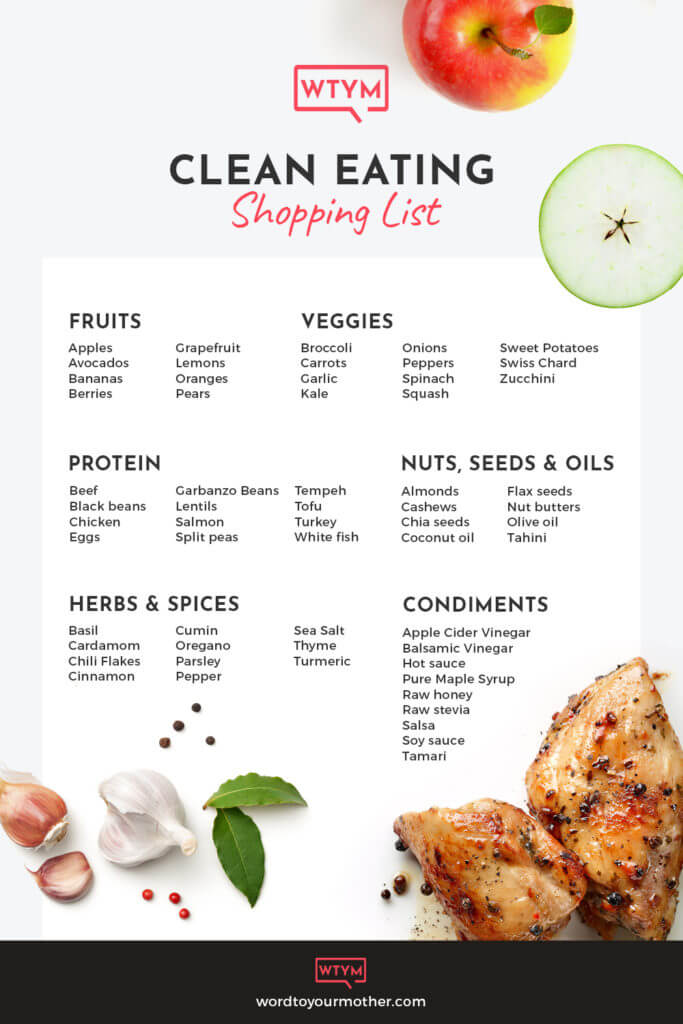
Click here to download the list!
More Healthy Recipes You’ll Love
This Healthy Mexican Vegetarian Casserole Recipe Is Clean Eating Comfort Food for Your Soul
Slow Cooker Moroccan Sweet Potato Detox Soup
Total Vegetarian Keto Diet For Beginners: This Sample Vegetarian Keto Diet Food List + Meal Plan Is The Ultimate Guide
40 Clean Eating Casserole Recipes
12 Clean Eating Dinners Ready in 30 Minutes or Less
25 Low Carb Power Bowls
Save or Share!
